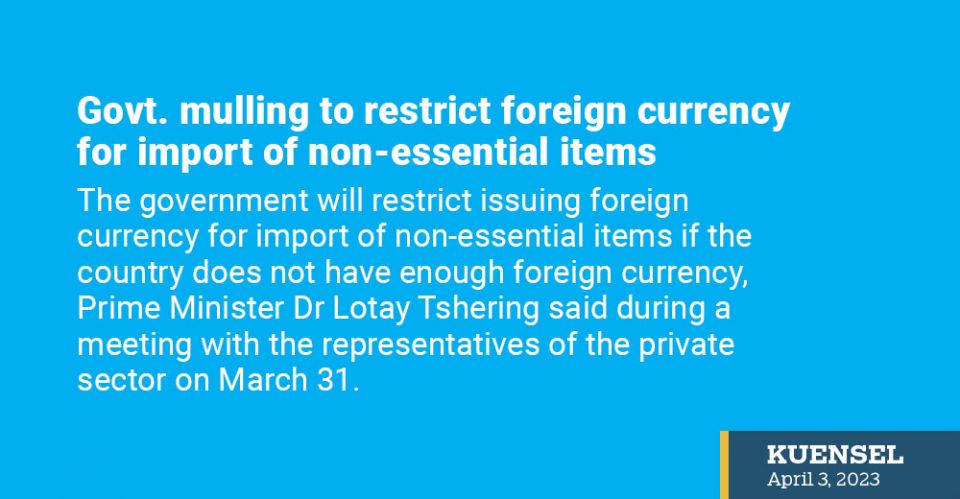
… no ban on imports of non-essential items
The government will restrict issuing foreign currency for import of non-essential items if the country does not have enough foreign currency, Prime Minister Dr Lotay Tshering said during a meeting with the representatives of the private sector on March 31.
However, he said that there will be no ban on the import of non-essential items.
The Cabinet on February 15 this year, directed the finance ministry to review and analyse the impact of imposing a moratorium on non-essential imports and whether to restrict the issuance of foreign currency for non-essential items based on the revised essential import value for 2023.
The government revised the 12 months’ essential import requirement value of USD 668 million (M) in 2017 to USD 603M for the normal period and USD 464M under the critical period from February this year.
Lyonchhen said that the country has to go for the phase-II of the moratorium. However, he said that for instance, while restricting import of furniture, which falls under phase-II moratorium, could reduce the outflow of Indian Rupee, it would hamper the businesses that depend on furniture import.
The finance ministry proposed to the Cabinet on a phase-II moratorium, recommending to suspend construction loans and ban the import of furniture, processed meat and food items, junk foods, alcohol and LED television.
Fast food, packaged noodles and canned juices are not essential, Lyonchhen said. He added that if the country does not have enough foreign currency, the government will have to restrict issuance of foreign currency for non-essential items.
“If businesses can manage their own foreign currency, they are allowed to import the non-essential items,” Lyonchhen said, adding that this could open a window.
He also said that remittance from Australia is on decline. Statistics show that the country’s foreign currency reserve position of USD 1.49B in December 2020 has declined by 40 percent in December 2021.
This further declined to USD 773.2M in November last year, and was able to meet the requirement of 13.9 months of the country’s essential imports.












